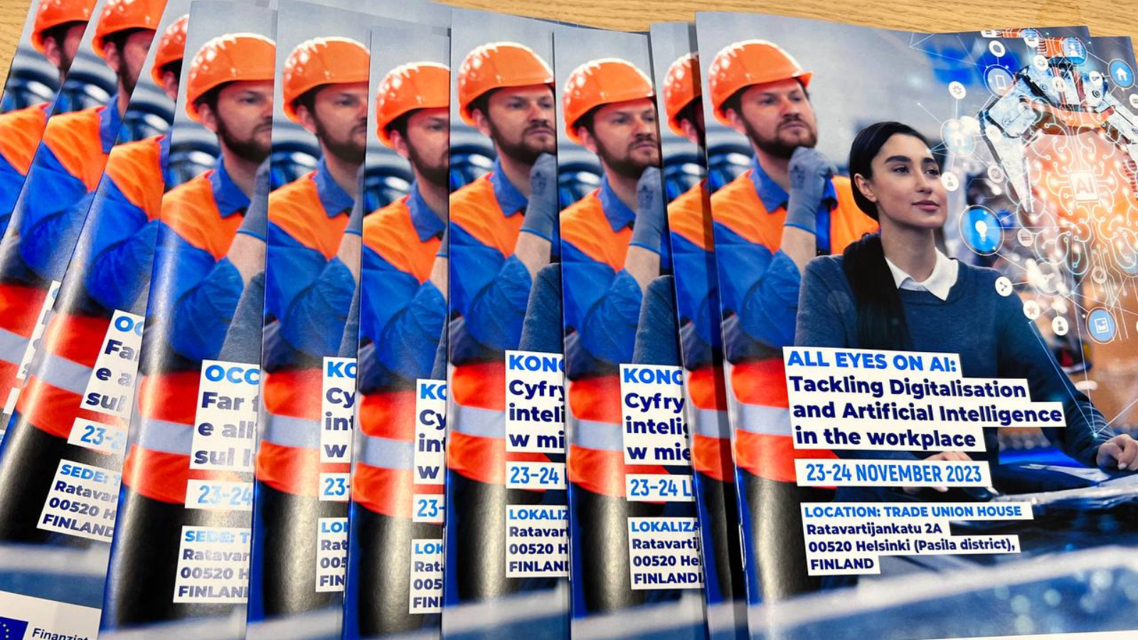60 trade union representatives from industriAll Europe’s affiliated unions, experts, researchers, and policymakers met in Helsinki, Finland on 23-24 November, to discuss the challenges of AI and to define the basis for a trade union strategy to tackle AI at the workplace and ensure a fair digital transformation for workers across Europe.
AI has been hotly debated ever since ChatGPT revealed that AI is a complete game changer on many levels, providing real-time feedback on anything it is programmed to do, with huge potential for productivity gains, but also with massive implications for the monitoring and control of workers, especially if left unregulated.
For unions, it is important to note that AI does not automatically lead to good or bad jobs. The outcome for workers depends on how AI is shaped and used at all levels: from the legal framework, through regulation, to a tailor-made approach through social dialogue and collective bargaining, especially at sectoral and company level by the social partners.
The conference therefore discussed key elements of a strategy for negotiating AI and securing our collective rights in the face of this rapidly evolving technology. Collective bargaining and social dialogue are key to ensuring that the productivity gains from AI are shared with workers in the form of wage increases, reduced working time and access to training.
Securing a collectively guaranteed ‘right to training’ will also be crucial to ensure a fair and just digital transformation for all. According to CEDEFOP, in 2020-2021, 40% of workers in manufacturing sectors in Europe had to learn how to use new digital technologies to be able to do their jobs. A right to training is therefore crucial, and industriAll Europe insists that the European Year of Skills delivers a right to training during working hours and cost-free for workers to meet the challenges of AI and enable a successful digital transformation of the European industry.
Isabelle Barthès, industriAll Europe’s Acting Joint General Secretary, said:
“Collective bargaining is also about ensuring a fair digital transition and the fair use of AI in the workplace. It is key to ensuring that the human-in-command principle is respected and that AI leads to fair outcomes for workers. This is only possible if we implement standards and tools at European level. It is the only way to prevent a widening of the digital divide that already exists between different regios.
“Trade unions do not stand in the way of technological progress, but we insist that it leads to good jobs for all workers. This is our compass for the use of AI.
“We can already see the role of AI in the greening of industry. The battery industry is making extensive use of AI. We need to ensure that the new jobs in emerging industries are good jobs, well-paid and secure, with collectively negotiated rights!”


